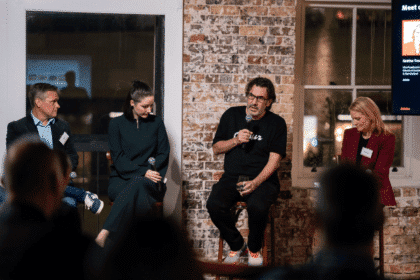The seventh Global Women in PR Annual Index has been launched, which shares data from 976 female PR professionals around the world, including Australia.
The data revealed that women globally continue to experience slower career progression than men with the spotlight on boardroom representation, the rise in harassment and the impact of career breaks.
In partnership with strategic insight agency Opinium, the research amongst PR professionals globally looks at aspects impacting women from the working environment to the barriers preventing women from taking on leadership roles.
Research respondents believe that women improve work practices (80 per cent), improve creativity (80 per cent) and improve company productivity (80 per cent). However, childcare or caring responsibilities (88 per cent), and lack of flexible working or family-friendly policies (76 per cent) have been revealed as key reasons more women don’t progress to senior roles.
Reports of harassment have also increased from 2023 data, with 52 per cent of respondents reporting experiences of harassment of Australian women working in the media industry reported incidences of psychological (56 per cent), power (56 per cent) and personal (44 per cent) harassment.
In a more startling revelation, 57 per cent of respondents who experienced harassment did not report the incidences, with 46 per cent revealing they were afraid it would have a negative impact on their career. When reported, 33 per cent of women were encouraged to leave or left, and 32 per cent said nothing happened after reporting
This year’s index saw the inclusion of a new section on career breaks to understand if and how career breaks impact women re-entering the workforce. The impact on women is at many levels, including salary, promotions and level adjustments.
Australian data reveals that 37 per cent of respondents took a career break, with a third (36 per cent) taking off between six months – one year. The most common reasons for taking a career break related to childcare (39 per cent) and stress/mental health (35 per cent).
“The PR industry has changed for women, but it’s moving at a glacial pace, and that’s just not good enough. Women make up nearly two-thirds of the PR and comms workforce, yet somehow, we are still locked out of many leadership roles and the boardroom. Until we fix that, we’re just slapping band-aids on a system with policies and mission statements,” Helen Graney, chair of GWPR Australia, CEO of Weber Shandwick and Jack Morton said.
“One of the biggest, most under-discussed problems? Ageism. We’re haemorrhaging experienced women from this industry right when we need them most. The 2024 GWPR Annual Index found that a fifth of women over 50 want out of PR. That’s not just a talent drain—that’s a crisis. If we don’t reverse this trend, we’re losing the very women who have the clout to drive real change. Flexibility should be a game-changer for women’s careers, but unfortunately, it runs the risk of becoming another roadblock. The report found that 26 per cent of women believe flexible working hurts their career progression, and the same fears apply to career breaks,” Graney added.
“No surprise there, but here’s the fix: We need more women in leadership, full stop. Not as token hires, not as diversity stats, but as decision-makers who drive lasting change. Because until we get that right, PR will be just another industry that talks a big game on equality but doesn’t deliver where it counts”.
“The reality is that career breaks – whether for parenting, caring responsibilities, or other life events – are disproportionately affecting women’s career trajectories. Despite women making up two-thirds of our workforce, the GWPR Annual Index shows that taking time away from work continues to create significant barriers to advancement, particularly into senior leadership and board positions. What’s particularly concerning is how this contributes to the loss of senior female talent. These breaks often come at critical career junctures, just when women are positioned to step into more senior roles,” Louise Harland-Cox, chief executive officer of Communication and Public Relations Australia (CPRA) added.
“We’re seeing that many women find it challenging to regain their career momentum after returning to work, with some ultimately leaving the industry altogether. This isn’t just about individual careers – it’s about losing the very leaders who could drive meaningful change in our industry”.
“Through GWPR, we’re exploring how our industry can better support women through career transitions. This isn’t just about keeping talent – it’s about recognising that diverse experiences make our industry stronger. Our industry knows how to drive social change – we do it for our clients every day. Now it’s time to apply that expertise to our own backyard,” Harland-Cox added.








